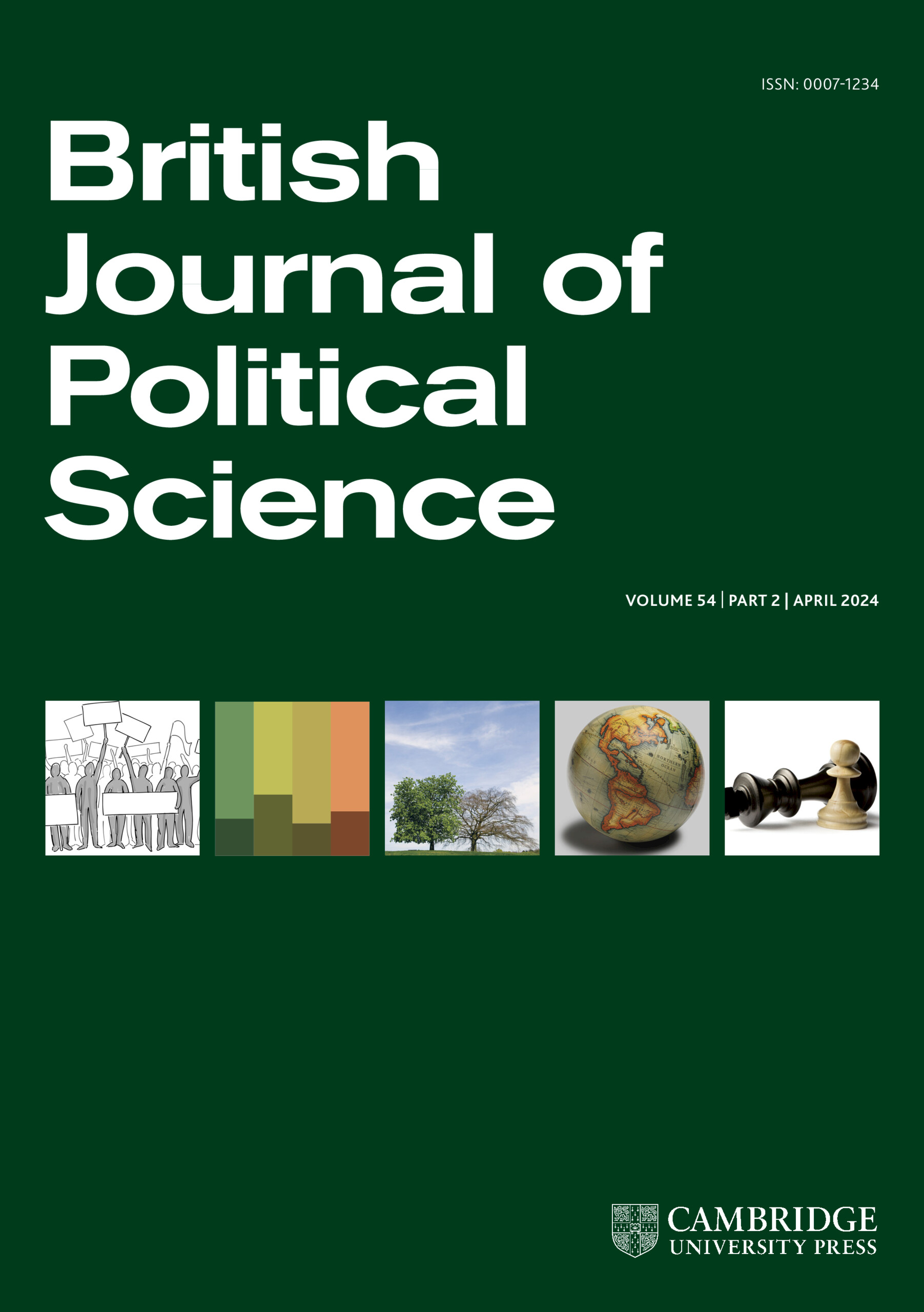阶级、民族、年龄或教育:什么特征决定公民的政治共同性?
IF 4.7
1区 社会学
Q1 POLITICAL SCIENCE
引用次数: 0
摘要
从选举研究中,我们知道哪些人口特征最能预测投票选择,但我们对公民如何根据这些特征感知彼此的相似性知之甚少。先前的研究表明,这种认知可能对社会身份的政治化和政治身份的出现至关重要。我提出了一种新的测量策略的结果,其中受访者提供了两个同胞的概况,包括几个人口统计属性。受访者被问及他们认为自己在政治方面与两人中哪一个更相似。受访者对不同人口统计学相似性的隐性权衡使我能够衡量他们感知到的政治相似性的相对强度。我发现共同的种族有着重要的作用,明显超越了共同的社会阶层、年龄和教育程度。最后,我发现,在2017年的保守党和2016年的脱欧派选民中,共同的种族因素比工党和留欧派选民更受重视。本文章由计算机程序翻译,如有差异,请以英文原文为准。
Class, Ethnicity, Age or Education: What Characteristics Determine Citizens' Sense of Political Commonality?
Abstract We know from election studies which demographic characteristics best predict vote choice, but we know far less about how citizens perceive their similarity to one another in terms of these characteristics. Previous research suggests that such perceptions may be crucial for the politicization of social identities and the emergence of political identities. I present results from a novel measurement strategy where respondents are presented with the profiles of two fellow citizens, including several demographic attributes. Respondents are asked which of the two they perceive themselves to have more in common with in terms of politics. Respondents' implicit trade-off of different demographic similarities allows me to measure the relative strength of their perceived political similarities. I find an important role for shared ethnicity, noticeably surpassing shared social class, age and education. Finally, I find that shared ethnicity receives substantially more weight among 2017 Conservative and 2016 Leave voters than among Labour and Remain voters.
求助全文
通过发布文献求助,成功后即可免费获取论文全文。
去求助
来源期刊

British Journal of Political Science
POLITICAL SCIENCE-
CiteScore
8.70
自引率
4.00%
发文量
64
期刊介绍:
The British Journal of Political Science is a broadly based journal aiming to cover developments across a wide range of countries and specialisms. Contributions are drawn from all fields of political science (including political theory, political behaviour, public policy and international relations), and articles from scholars in related disciplines (sociology, social psychology, economics and philosophy) appear frequently. With a reputation established over nearly 40 years of publication, the British Journal of Political Science is widely recognised as one of the premier journals in its field.
 求助内容:
求助内容: 应助结果提醒方式:
应助结果提醒方式:


